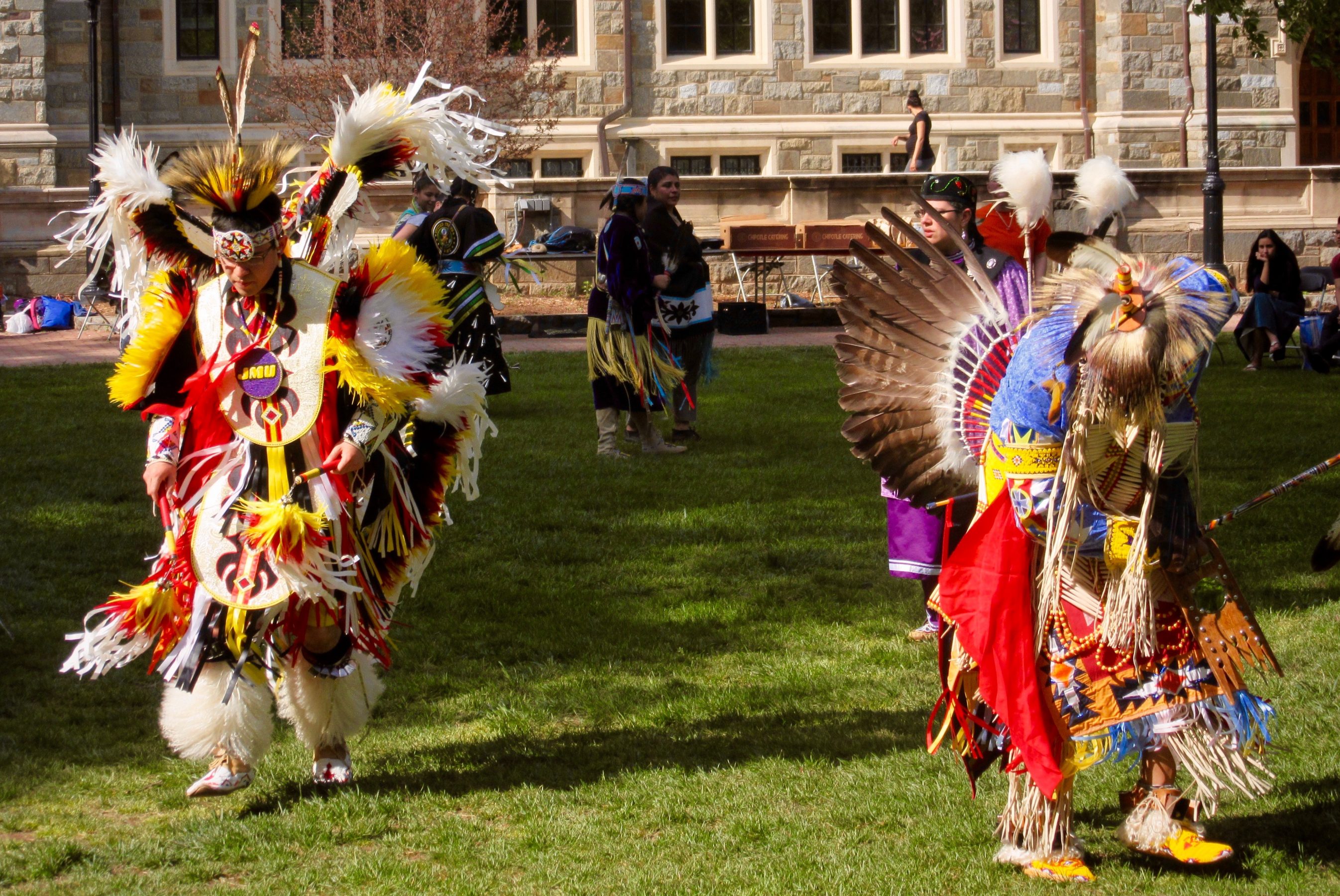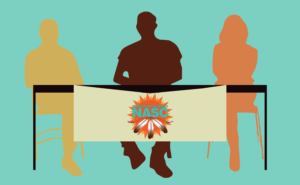The Native American Student Council (NASC), the only Native undergraduate student group at Georgetown, submitted a petition to the Office of the President on April 3. The petition reminded the campus that despite progress made regarding the university’s history with slavery in the form of the GU272 Referendum, Native issues remain largely unrecognized.
This editorial board believes the university must make concrete steps toward the demands made in the petition. These include hiring a Native Program Coordinator, creating an Indigenous Studies major and/or minor, crafting a land recognition statement which would be read at university events to acknowledge the history of the university’s land, and establishing a dedicated space for Native spiritual practices. Each of the demands addresses a struggle that Native Georgetown students currently face and if remedied could significantly improve their experience on campus.
Native Americans and Indigenous peoples are some of the least recognized groups on campus and are not offered much institutional support by the university. To make matters worse, these students also find a lack of support within the larger Georgetown community. There are very few Native students on campus, none of whom are of the same tribes, which makes it difficult to create solidarity. It is easy for those students to feel isolated in a community that is not cognizant of Native issues.
While attending school in D.C., Native students are surrounded by images of the Washington Redskins, whose name and logo have been widely criticized as offensive to indigenous peoples. On campus, racially insensitive phrases such as “going off the reservation” are used without being acknowledged as offensive, which contributes to a culture of microaggressions against Native Americans. Georgetown has also exhibited a clear disrespect of Native people through the continued celebration of Columbus Day, which NASC has asked be renamed Indigenous People’s Day.
For Native students who come from vibrant Native communities, this culture creates a campus that is unwelcoming, making them feel marginalized and alone. Regardless of how small Georgetown’s Native community is, this treatment is unacceptable. We believe this could be combatted through efforts by Georgetown to support Native students, both by accepting NASC’s petition and working to create a more welcoming and inclusive culture on campus.
NASC has expressed its frustration with the university’s bureaucratic structure and the difficulties it has created for the group. NASC attempts to reach out to the few Native students on campus to create the largest community possible. However, students do not have access to records of which students are Native due to the Family Educational Rights and Privacy Act, so NASC has to rely on other Native students to find them instead. With the creation of a Program Coordinator, a designated faculty member would be available to help reach Native students and advocate for Native issues within the administration.
As a university, Georgetown has the opportunity to conduct research and educate others on Native history and issues. This editorial board believes that this ability should be translated into an Indigenous Studies academic program, so any student can take classes on Native history, a subject largely ignored on campus. Georgetown should also make an active effort to incorporate more Native history into its core curriculum and to hire Native faculty and staff. The university can use its resources to bring more Native speakers to campus and create a working group on the university’s history with Native peoples.
One issue this working group ought to explore is that the land Georgetown currently occupies was previously the land of the Piscataway people. The first Jesuit mission in America was established on Piscataway land in 1634, after which missionaries converted many tribal members to Catholicism. The Piscataway have been working with NASC to advocate for a land recognition statement to be read at university sponsored events. This is an important step in continuing to acknowledge Georgetown’s past, following the recognition of the sale of 272 enslaved people in 1838. The statement could be read at major university events and posted on the school’s website. Other universities, like the University of Toronto, have already taken similar steps and made such statements.
Native students also currently lack a cultural space, which limits gatherings and worship. Native spirituality often involves the ritual burning of herbs, which is prohibited in university residential living spaces, meaning Native students have to violate these policies to worship. NASC’s request for a dedicated cultural sanctuary would resolve this problem and allow Native students to worship openly, in community with one another.
Along with this institutional support there is also a role for students to play in supporting Native students on campus. NASC puts on several events each year, and students should make it a priority to attend them. Their annual Powwow was cancelled this year, a concrete effect of the lack of support for Native students on campus. Most students arrive on campus without much education in Native issues, which can lead to a dismissal or misunderstanding of Native culture. This contributes to the marginalization of Native students and must be avoided by self-education.
There is much progress to be made in supporting and improving the experience of Native students on campus. We urge the university to agree to NASC’s requests, and we hope the rest of the student body will work toward education and participation.





